RUSH: Here’s Lynn in Noblesville, Indiana. Great to have you. Glad you waited. What’s up?
CALLER: Thank you so much. I’m glad to finally get through to you. I have a question on behalf of a house full of Millennials, I should say. I have four children 18 to 24 and a plethora of their friends. The majority of them are Bernie Sanders fans, and they’re having a hard time understanding this whole Electoral College thing, no matter how much we try to explain it. My question is this. What is the negative side to what looks like the positive side of distributing the Electoral College votes the same way we do in some states during the primary?
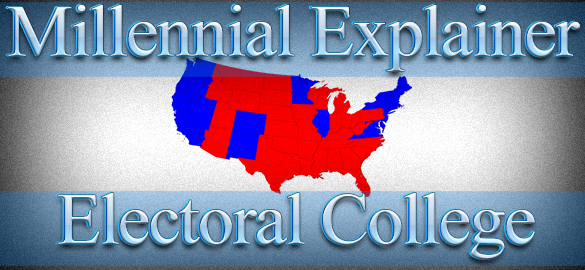
RUSH: Well —
CALLER: I thought, you’re the guru of all things that I can’t explain to my Millennials, because I’m sure there’s a downside to those theories.
RUSH: I would love to know… I’m gonna have to ask to hold on through the break at the top of the hour, because before I answer this, I need to know what you’re telling them that they are rejecting, that they’re not believing about the purpose of the Electoral College, and then we’ll get into your theory there. But can you hang on?
CALLER: I sure can. Thank you.
RUSH: Good. We’ll take a brief time-out here, folks, and delve into this back.
BREAK TRANSCRIPT
RUSH: Okay. Gonna go back to Lynn in Noblesville, Indiana. You still there?
CALLER: I am.
RUSH: Okay. Let me recast this, and you correct me if I get anything wrong. She has four kids, among them some Millennials — old enough to be Millennials — and they have been questioning the value of Electoral College. Why doesn’t the popular vote matter? It seems like that ought to be the way we elect the president, not state by state. They came up with an idea that we would apportion states like we do in primaries. In the Republican primary, if Trump wins a state, he gets whatever percentage of the delegates in that state according to the vote he got and so forth and so on. Because that would make every state count, you say.
CALLER: Right.
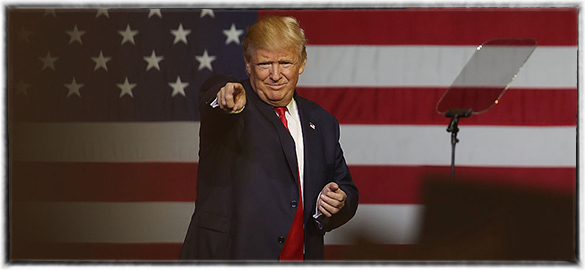
CALLER: Well, I think it’s got more to do with the fact that they’re bombarded with a lot of their friends in an education system and a media system that doesn’t give them the actual historical facts. What I have been telling them is the purpose of the Electoral College as the Founding Fathers had put it together, was designed to make sure that heavily populated areas did not overwhelm the more rural areas or the needs of people who didn’t live in densely populated portions of the country.
And that in doing so, it ensured that everyone had a say regardless of your demographic and that the possibility of voter fraud or rigging the elections… Because they would never know where to target because they didn’t have to… You know, they had to worry about everybody, was the main concept that the Founding Fathers had in mind when they made the Electoral College a part of our election process.
RUSH: All right, and your kids rejected that because they…?
CALLER: Well, they don’t understand why the popular vote doesn’t matter. Especially, as I said, I think it’s more the bombardment of the media and how they’re making it sound.
RUSH: Well, there’s no question. But the reason the media and the bombardment of their friends is able to work is that when they were in middle school, they weren’t taught about the founding of America.
CALLER: Right!
RUSH: They weren’t taught about the Founding Fathers. They weren’t taught about the concept of federalism. You can’t understand the Electoral College unless you know what federalism is, and federalism is one of these terms that, in many cases, means the exact opposite of the word as it’s currently applied. The word “federalism” you might think that means federalism trumps everything; federalism means federal domination. It does not mean that. It means the exact opposite, in fact. It means the states are sovereign and the federal government cannot tell ’em what to do in so many different ways.
But I think you are very close with your assessment of population centers. The founders did not want population centers to dictate to the rest of the country. They had already seen that happen in Europe in their day, and they had seen the kind of people that gravitate toward various areas. I mean, even in the early days of the country when it was largely an agrarian or agricultural, farmer-type of economy. There were still cities; there were still elites.
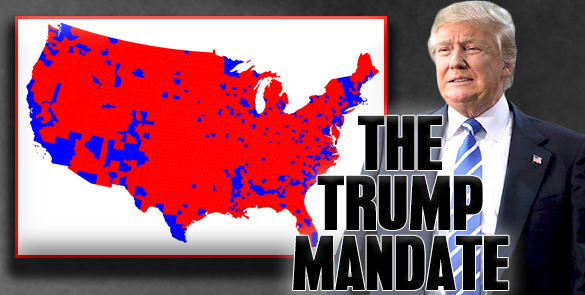
The Electoral College has been with us since the first days of the country. The reason for its founding… I mean, some people would even tell you that the Electoral College was established to protect the country from the votes of a bunch of ignoramuses and people uninformed out in the sticks who didn’t know what they were doing. I mean, there were people even tell you that that was one of the original thought processes involved in establishing the Electoral College.
CALLER: (giggling)
RUSH: But it is a way of having a flat-out popular election without calling it that. If you didn’t do this — if you didn’t have the Electoral College — we would be at the mercy of how state legislatures draw their electoral districts, and we would have electoral districts drawn strictly for the purposes of winning presidential elections and not for the purposes of state and local representation.
CALLER: Right.
RUSH: But the short answer to this is almost identical to why every state has two senators but a different number of members of the House based on population, and it is to make sure that there is equal representation across the board. There are some states based on population that would not even have a senator, if the Senate were not established the way that it is. Some practical examples. If the popular vote elected the president today, two states —
CALLER: California and New York. Mmm-hmm.
RUSH: — California and New York — would be all you would need. And that means campaigns would occur only there and campaigns would focus only on issues relevant to those people in those states.
CALLER: Right.
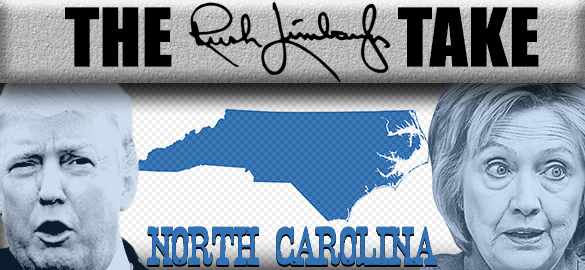
People that live in the Northeast are leaving the Northeast for a whole host of reasons. They’re relocating in Southern states and Midwestern states — no-income-tax states, milder climate states — and it’s affecting the balance of power in those states. North Carolina used to be reliably red. Now it’s a battleground state. The Electoral College guards against all of this. The Electoral College protects state sovereignty. It actually is one of the most brilliantly conceived electoral mechanisms ever. Let me ask you a question here, Lynn.
CALLER: Yes?
RUSH: We are not a democracy. I think if your kids understood that — and most people don’t. We are a representative republic. We’re not a direct democracy.
CALLER: Right. Correct.
RUSH: And most people don’t know that, particularly young people. They think we’re democracy. Tell your kids this. “If we lived in a democracy, if this house were a democracy and…?” How many are in your house?
CALLER: Well, currently three, but I have one in the Navy.
RUSH: Let’s pretend six people live in your house.
CALLER: Okay.
RUSH: And you propose that only four people get to eat every day, and you put it to a vote. If four people vote that only four people get to eat, two people don’t, that prevails. That’s what a democracy is. It’s strictly majority-minority rule. We do not have that. We have what’s called a representative republic.
CALLER: Correct. Well, so what would be…? For the people that are, you know, petitioning and complaining that we need to go to popular vote — and I understand the Electoral College — what would be the benefit or the possibility of, as I said, doing the Electoral College based on the number of votes, the percentage of votes an individual candidate received? For example, Pennsylvania has 20 electoral votes.
RUSH: Because it would dilute the power of the states. The state sovereignty is key here in the Electoral College —
CALLER: Okay.
RUSH: — and if you’re going to start divvying up the power of each state’s elections, you are destroying state sovereignty. You cannot —
CALLER: Okay.
RUSH: You cannot, in a national election… It’s not a primary.
CALLER: Right.
RUSH: It’s a national election. You can’t apportion votes that way because you are causing the state to lose power. It’s a dilution of the state’s sovereignty and power. What I was gonna ask you is this.
CALLER: Yes?
RUSH: Let’s take… Without getting into arguments, Hillary Clinton appears to have won this election by… Not won the election. She has appeared to garner two million more votes than Donald Trump, right?
RUSH: Could you explain to me why is there not a national outrage over this that Hillary won? Why is it only just a few people? Why is it only just a few pockets of the media? Why is it a very small minority of people running around complaining about this? You would think that if somebody won an election by two million votes, that there would be a national outrage over it and that Hillary would be demanded to be declared the winner, that people would think they’re being scammed left and right. But that’s not happening. Why? “Why do people accept the Electoral College?” is the question. Why do they accept it?
CALLER: I think there are enough currently that understand the importance of it. My concern is that as this new Millennial generation moves forward, not totally understanding the premise and the protections that the Electoral College provides, that ultimately in future generations they’ll try to dismantle it without being aware —
RUSH: Look, that’s always a risk in a free society.
CALLER: Right.
RUSH: I’ve been worried about that my whole life, that the left is gonna rip apart everything that makes this country what it is, as they have been trying for the last eight years and even longer.
CALLER: Right.
RUSH: And the reason they’ve gotten as far as they did is because young people haven’t been taught. Young people have been ill-educated, mis-educated, propagandized. I see it in everything I read written by young people. It’s just… You can spot it a mile away, their ignorance. And it’s coupled with they think they’re the only people that know. They’re arrogant. They’re a little bit smarmy about what they think they know and nobody else does, which is a characteristic of young people anyway. I was that way when I was young.
CALLER: (chuckles) Well, I’ve seen our daughter that’s studying ministry. She has seen it. She’s the youngest of our children, and she sees it now because she sees it from a true conservative and a better understanding instead of all the hype. But I also see my daughter that’s in the Navy who lives in California — I’m so sorry (chuckles) — that has moved more towards the Bernie Sanders socialism. Even though she understands that socialism can’t work in a population like the United States. Even though she understands that, you know, governments like Denmark don’t support their own military. They rely on us so they have more social programs.
RUSH: Okay, then wait. Why does she support…? If she knows it doesn’t work, why does she support it?
CALLER: She’s overwhelmed in that demographic in California with the “social consciousness” that’s supposed to be so prevalent. That’s the only way I know to say it. That’s what I hear from all these kids.
RUSH: No, it’s exactly right. She knows it doesn’t work and yet supports it. The answer is psychological.
CALLER: Exactly.
RUSH: She wants to love herself. She wants to feel good. She thinks if she doesn’t support socialism, people will think she doesn’t have a heart, that she doesn’t care about other people. So she knows it doesn’t work, but it’s more important for her to be seen by people as somebody who cares and has the proper compassion than to do what she knows works and what doesn’t work.
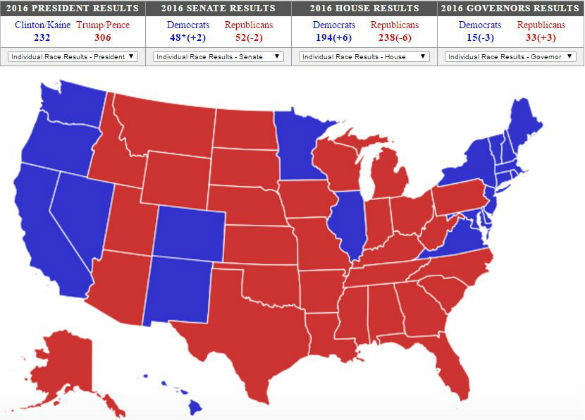 The psychological peer pressure that the left has employed — and deployed, actually — on young people has been overwhelmingly successful. It has created droves and droves of people that vote against what they know is right, vote against their own self-interest, in exchange for feeling good about themselves and also being immune from criticism. Don’t discount that part of this, too. There’s a lot of factors in this. (sigh) I think the root of this is like anything — or the solution to this.
The psychological peer pressure that the left has employed — and deployed, actually — on young people has been overwhelmingly successful. It has created droves and droves of people that vote against what they know is right, vote against their own self-interest, in exchange for feeling good about themselves and also being immune from criticism. Don’t discount that part of this, too. There’s a lot of factors in this. (sigh) I think the root of this is like anything — or the solution to this.
The understanding of it is in a more proper education for young people about civics and about the kind of country we are and the founding and the Constitution, and it simply isn’t taught. So in a sense, you can’t blame them. They’re simply relying on what they think makes emotional sense, psychological sense. “Somebody got more votes than somebody else! Why didn’t they win? Doesn’t make sense. I mean, if the Yankees score more runs than the Orioles, they win the game.” It doesn’t compute for them.
They’re comparing apples to oranges and don’t know it, because we do not have a democracy. It’s not what we have. We have a representative republic and therefore the rules and regulations that have been written to maintain it are not truly democratic — not purely democratic — in origin. They are about protecting and defending the establishment of this republic. (interruption) Well, the reason more people aren’t complaining is ’cause they instinctively know the Electoral College is justified and right.
They instinctively know it. My point is, if the Electoral College were not at some level understood, tens of millions of people would be out there protesting thinking that what they just did has been taken away from ’em. You have an election. I don’t know what the total number of people who voted is. I’d have to take a wild guess. Let’s say 120 million people voted, 122 million people. Hillary gets 62 and Trump gets 60 and he wins?
I mean, if people didn’t understand and accept the Electoral College, we would have gazillions of people protesting and burning down the Capitol Building and doing anything else they could get close to. They do understand it, and they accept it. Whether they understand it or not in an intellectual sense, they accept it because of the way election coverage is presented, the way elections are talked about, the way campaigns are conducted. Campaigns are conducted specifically because of the Electoral College, and people accept it and they understand it. Whether they know it or not, they accept it.
BREAK TRANSCRIPT
RUSH: Now, I mentioned earlier in the program that I found something yet again that is bubbling up, it’s effervescing out there, and it’s not yet broken the surface in a national way. It’s about, the story, this Harvard lecturer who wrote in October out of fear that Trump would be elected, that our democracy is unstable and rife for being eroded and torn apart, and his theory is because Trump is going to just rip everything up and do it his own way.
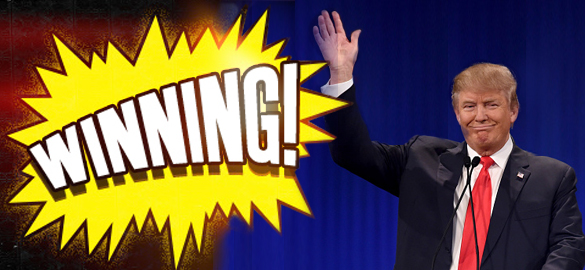
I mean, why haven’t we crumbled already? Why haven’t we been felled by internal corruption already? Not only longest-lasting. It’s one of the most stable governments where the population is free. You can find eons of dictatorship and tyranny, but I’m talking about our way of life. It’s precisely because we’re not a democracy that we have survived! It’s precisely because majority rule does have checks and balances on it. It’s precisely because this is a representative republic that we have survived.
So this guy’s article is all about how stable are democracies?
Democracies are not very stable, but we don’t have one when you get right down to it. A lot of people think that this is a conspiratorial point of order. But it isn’t. It’s genuine. There’s a big difference in a representative republic and a democracy. We do not have a democracy. There are elements of democracy in votes here and there. But in the actual structure of the government, we’re a representative republic. The primary reason we’ve survived is that we have had leaders who’ve respected the Constitution, feared it and the rule of law, and we’ve been very lucky there.
BREAK TRANSCRIPT
RUSH: All right, speak of the devil, The Politico just posted in the past couple of hours — and I just now became aware of it — “Anti-Trump Forces Launch Attack on Electoral College.” The subhead is: “The last-ditch effort to stop Donald Trump is gaining momentum.” And from the article this excerpt: “Anti-Trump forces are preparing an unprecedented assault on the Electoral College marked by a wave of lawsuits and an intensive lobbying effort aimed at persuading 37 Republican electors to vote for a candidate other than Donald Trump.”
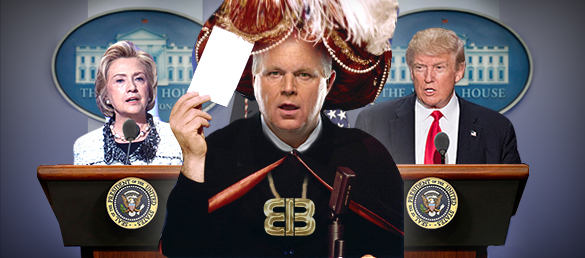
Okay, then what happens?
Well, it doesn’t mean Hillary wins.
It means the election… If nobody gets 270, despite the fact that these states have certified, this means that the election will go to the House of Representatives. The Republicans control both the House and the Senate. So theoretically, the House would elect Trump and the Senate would elect Pence. But (chuckles) how many Republicans are faking this adulation and support they have for Trump right now? How many are going along just to go along? How many of them privately still seething. How many of them still hate the guy? How many?
We don’t know. But let’s not go there. Let’s assume Trump wins the vote in the House, Pence wins the vote in the Senate and is still president. So you ask yourself, “Why do this then? Why go through all this? Why deny Trump the Electoral College if he’s gonna end up being president anyway?” This is where you have to understand the left, because then the scenario that they would begin talking about endlessly (sobbing): “Trump lost the popular vote! He didn’t win the Electoral College and his buddies in the House conspired to make him president!
“He’s not elected. He’s been forced on us! He’s not legitimate. We don’t have to do one thing Trump says,” and it would be a continuation of what they’ve already started, and that is an effort to portray Trump — his election as illegitimate, a violation of the law — and his presidency as illegitimate. That’s the objective here. I mean, they may actually think they can get Hillary elected here. I mean, deranged people everywhere, and there may be in this bunch some people actually think they can succeed in getting Hillary to win it. But the overall objective is to give the Democrat Party strength, resolve, and energy to oppose anything and everything Trump does. Because he’s not legitimately elected. That’s what this is ultimately about.



